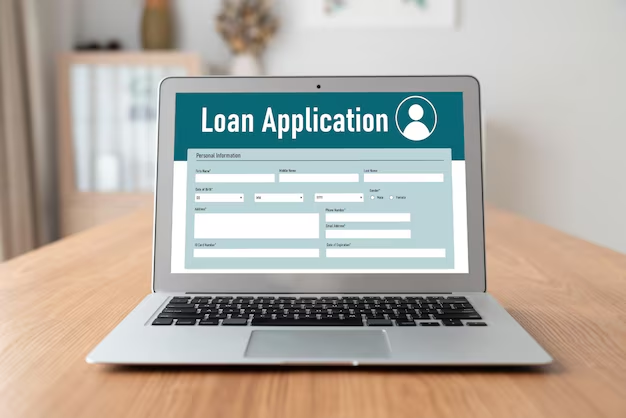Navigating Your Path to a VA Loan: Essential Guidelines and Tips
Purchasing a home is a significant milestone, especially for veterans and active-duty service members who have dedicated part of their lives to serving their country. The Department of Veterans Affairs (VA) offers an attractive home loan option that makes owning a home more affordable. But how do you qualify for a VA loan? This comprehensive guide will explore the qualifications, benefits, and steps needed to secure a VA loan, ensuring you have the knowledge and confidence to take the next steps in your home-buying journey.
🎖️ Understanding VA Loans
VA Loans are mortgage loans issued by private lenders but guaranteed by the Department of Veterans Affairs. These loans are designed to provide favorable terms to those who have served our country, offering options that are often more advantageous than standard loans.
Key Benefits of a VA Loan
- No Down Payment Required: Unlike conventional loans, VA loans can cover 100% of the home’s value.
- No Private Mortgage Insurance (PMI): This can help lower your monthly payment.
- Competitive Interest Rates: Generally lower than those available through traditional loans.
- No Prepayment Penalty: Allows for repayments without additional charges.
🌟 Basic Eligibility Requirements
1. Service Requirements
To qualify for a VA loan, there are specific service duration and duty status conditions you must meet:
- Veterans: Must have served 90 consecutive days of active duty during wartime or 181 days during peacetime.
- National Guard and Reserve Members: Must have completed six years of service or have been called to active duty for at least 90 days under Title 10.
- Current Active Duty Members: Must have served 90 days of continuous active service.
- Surviving Spouses: Depending on certain conditions, spouses of deceased veterans may also qualify.
2. Certificate of Eligibility (COE)
A COE is required to verify to your lender that you qualify for a VA loan. It can be obtained through:
- VA’s eBenefits portal,
- A VA-approved lender, or
- By mail using VA Form 26-1880.
💼 Financial Qualifications
While the VA provides the loan guarantee, lenders ultimately determine the financial specifics:
1. Credit Requirements
VA loans offer more lenient credit standards, yet lenders often look for a credit score of at least 620. However, this can vary by lender, and some may approve lower scores.
2. Income and Employment Criteria
Proof of steady income and employment is required, generally demonstrated through:
- Pay stubs,
- Tax returns, or
- Other documented earnings.
Lenders also use a debt-to-income (DTI) ratio to assess your ability to manage monthly payments. A typical DTI ratio expected is around 41%, but higher ratios are possible with compensating factors.
3. Residual Income
Unlike traditional loans, VA loans emphasize "residual income," ensuring you have enough money left each month after all major expenses to cover living costs. This calculation varies depending on family size and geographic location.
🏡 Property Requirements
VA loans must be used for personal residences. Properties must meet specific conditions, ensuring they are safe, sound, and sanitary:
- Types of Eligible Properties: Single-family homes, VA-approved condos, and some multi-unit properties.
- Minimum Property Requirements (MPRs): These include adequate roofing, utilities, heating, and living spaces.
- Appraisal and Inspection: A VA appraisal is mandatory and different from a home inspection, ensuring the property meets MPRs.
🔑 The Steps to Securing Your VA Loan
Step 1: Request Your COE
Begin your loan journey by securing your Certificate of Eligibility through one of the methods mentioned earlier.
Step 2: Pre-Qualification and Pre-Approval
Consider getting pre-qualified to understand your financial standing. Moving to pre-approval involves submitting detailed financial documentation and provides a more precise loan amount.
Step 3: House Hunting
Armed with your pre-approval, you can confidently search for homes within your budget that meet VA property standards.
Step 4: Make an Offer
Work with your real estate agent to negotiate an offer on a property. It’s beneficial to have a contingency clause concerning the VA appraisal.
Step 5: Complete the Loan Application
Formalize your application with your chosen lender, submitting necessary documents such as income verification and your COE.
Step 6: VA Appraisal and Underwriting
Your lender will order a VA appraisal. This is followed by underwriting to ensure all loan requirements are met. Be prepared to address any conditions placed by the underwriter.
Step 7: Closing
During closing, you’ll sign loan and property documents. Closing costs, which may be covered by the seller, include the VA funding fee unless you are exempt.
📊 Quick Reference Table: Key VA Loan Highlights
| Aspect | Details |
|---|---|
| No Down Payment | 100% financing available |
| Credit Score Recommendations | Typically around 620, lender-dependent |
| Military Service Eligibility | Varies by duty status and duration |
| COE Requirement | Essential for confirming eligibility |
| Appraisal and Inspection | Mandatory VA appraisal, independent inspection |
| Types of Properties | Must meet safety and livability standards |
📌 Practical Tips
- 📃 Stay Informed: Understanding eligibility criteria and financial requirements help avoid surprises.
- 👨💼 Consult Experts: A VA loan-savvy real estate agent can be invaluable.
- 🗂️ Keep Documentation Ready: Ensuring all service and financial documents are easily accessible speeds up the process.
Navigating the path to a VA loan can seem daunting, but with the right preparation and understanding, you can transform your homeownership dream into a reality. Whether you’re a veteran, active service member, or spouse, these loans provide a significant advantage in the housing market, reflecting the nation's gratitude for your service. As you take the next steps toward securing your VA loan, remember that each stage is a stride towards owning a piece of the American dream.

Related Topics
